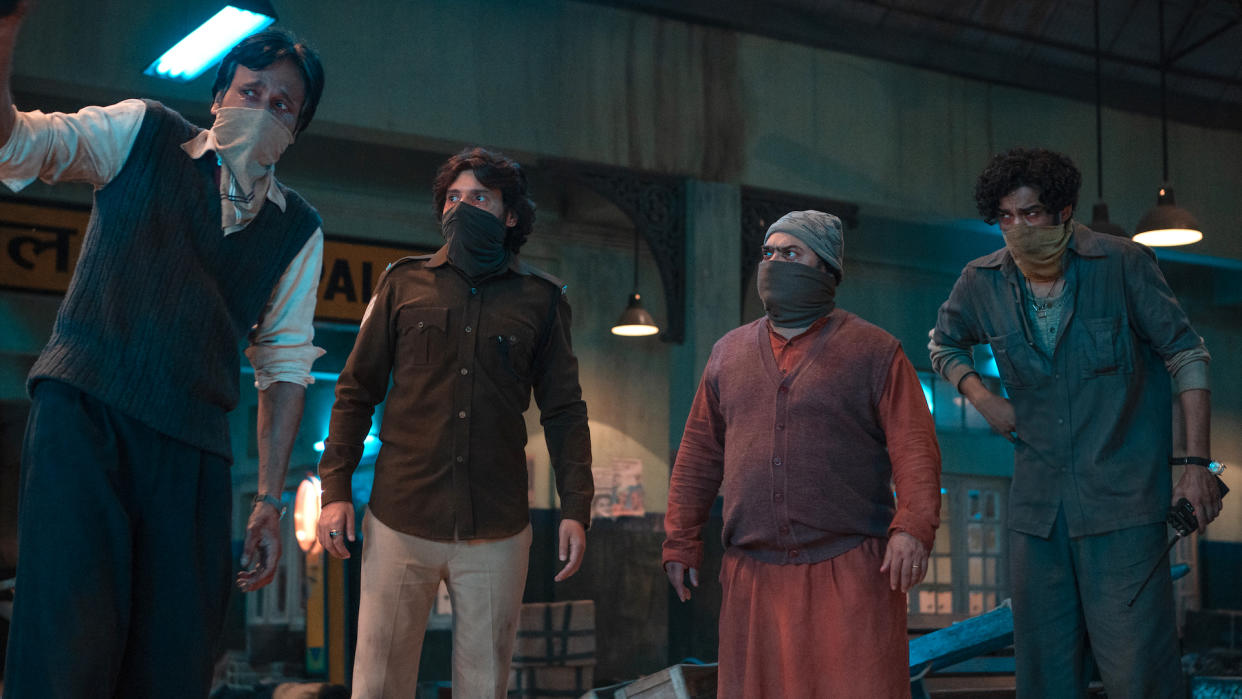Netflix’s ‘The Railway Men’ Explores a Catastrophic — and Preventable — Loss of Life

In 1984, a gas leak broke out at an Indian factory and led to the eventual deaths of over 15,000 people.
Despite its colossal effects, the Bhopal gas tragedy has rarely been depicted on-screen until now. Netflix and YRF Entertainment’s “The Railway Men: The Untold Story of Bhopal 1984” directed by Shiv Rawail, puts a spotlight on the horrific night of December 2, 1984, when infrastructure and bureacracy paid the price of thousands of human lives.
More from IndieWire
Child's Play? Hardly - 1 'Squid Game' Challenge Required 9 Months of Development
Which Kind of Streaming Subscriber Are You: Inert, Hyper, or Pragmatic?
The gas leak occurred at a pesticide factory just outside city limits, where a tank of methyl isocyanate (MIC) was exposed to water, which led to a rapid exothermic reaction. Due to poor factory conditions and maintenance, various safeguards against a catastrophic leak failed, and the toxic gas spread from the factory to the city and the surrounding area.
“The Railway Men” is not immune to waves of melodrama and stylistic flourish, often ramping the tension up to levels of “there’s no way this is how it happened” (it didn’t) or adding in a musical montage and graphic of a movie train. But the series is grounded and in highly capable hands with its cast, particularly Kay Kay Menon as the railway stationmaster who becomes a steward for trapped civilians on the fateful night (based on a real figure, Ghulam Dastagir, but modified for this telling). The filmic urge to paint sanctified heroes and cartoon villains gives the series notes of “Titanic” or “Chernobyl” — which occurred just two years later — or apocalypse movies where innocent locals try to outrun or battle the effects of poisonous air. When the Bhopal station loses contact with others nearby, it fuels a familiar flood of blocked communication, panic, and misinformation.
And then there’s the genocide.
In 1984, following Indira Gandhi’s military action against Sikh groups and assassination by her Sikh bodyguards, Sikhs across India were persecuted in violent pogroms that killed thousands (estimates range from 3,000 to over 17,000). “The Railway Men” weaves this into its narrative, juxtaposing willful negligence of human life with the dangers of hatred — both of which risk death. It is chilling to witness given the show’s timing.
Watching “The Railway Men,” it’s hard not to think about events currently unfolding in Gaza, from blocked communication to the inaction of government officials and the pushing back to provide aid. It’s hard not to think about the rising religious violence in India and worldwide, about spikes in violent Islamophobia and anti-Semitism just in the past month, when a Sikh man was beaten to death in a hate crime. “The Railway Men” puts a Sikh family on the Gorakhpur Express train from Mumbai to Bhopal; a mother and her son, forced to remove his turban and pretend with his long hair to be her daughter. The men hunting them are depicted as unequivocally evil, bloodthirsty without cause and filled to the brim with unfathomable rage. The show intertwines its historical inspirations the way so many on-screen works do; not to create distance from the past, but to invoke its proximity and lessons either learned or rejected. Violence and hatred, it seems, know no bounds of time or space — nor does deliberate ignorance and the choice to turn away and refuse help.
Rawail’s series puts the cinematic lens on Bhopal in a way that only dramas like this one can; it calls attention and raises awareness, dialing up the drama but still highlighting moral triumphs that did or didn’t occur — and how they might in the future. If one station master without ties to the government or military can be so strongly compelled to save innocent lives, can the same compass not guide those actually tasked with doing so? The question hangs over “The Railway Men” not unlike the noxious cloud at its center; impossible to ignore, and with dire consequences.
“The Railway Men” is now streaming on Netflix.
Best of IndieWire
Sign up for Indiewire's Newsletter. For the latest news, follow us on Facebook, Twitter, and Instagram.

